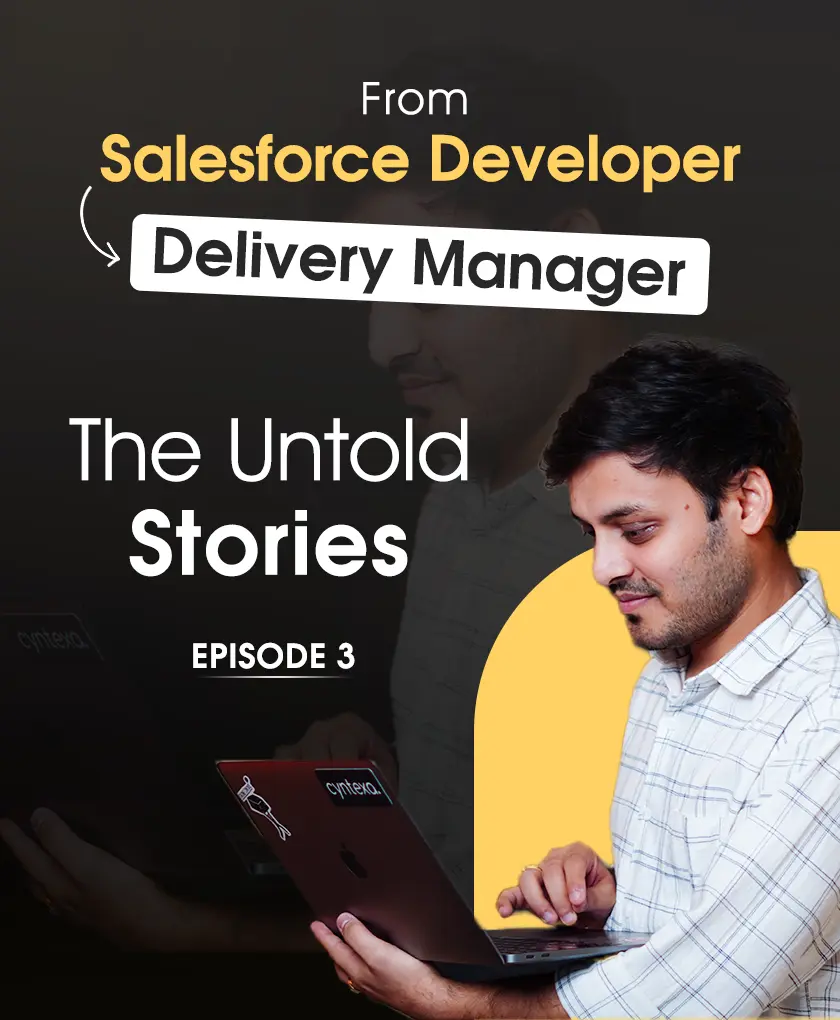Impact of Rebel and Evergage Acquisitions on Salesforce Marketing Cloud
Another two platforms that are riding the Salesforce acquisitions wave, Rebel and Evergage announced the big news in October 2018 and Feb 2020 respectively. An analytics platform and an e-mail marketing platform, the two seem to fit very well into the personalization agenda that 2020 has set forth for itself.
The B2B platform has immensely benefited by the tailor-made insights as a top CRM platform, Salesforce seems to have taken a book out of the old sales leaf and integrating the innovations to the marketing cloud platform – combining the best of both worlds in essence.
While Salesforce Marketing Cloud still brings in the least revenue (last standing at $1898 million) compared to any other cloud service offering by the company, it has seen tremendous growth in share. In 2015 Marketing Cloud contributed to 10% of the total revenue, while in 2019 the same stands at 15% as of 2019.
The numbers speak in terms of how acquisitions and the growth pattern of Salesforce Marketing Cloud, in general, has worked wonders for the B2C cadre.
Marketing Cloud offers to connect marketing tools to improve each stage of the AI funnel. It also integrates AI and analytics to help you eCommerce platform surge.
The top competitors to Salesforce Marketing Cloud have been HubSpot, AdTriba and Marketo. However, Salesforce seems to be the top contender, most likely because of the width of services that Salesforce can offer, making it in a one-stop-shop for everything marketing and sales. Salesforce’s 2020 motto of unifying, engaging and personalizing is very well seen in the Rebel and Engage acquisitions.
→ Also Read: How Salesforce Marketing Cloud Can Solve 3 Major Marketing Challenges?
What can Rebel bring to Salesforce?

While email marketing was already the greatest tool available for B2B companies, B2C companies have also jumped on board the train due to its impact and cost-effectiveness. Never before seen numbers with ROI, for every $1 spent on email marketing, the average return is about $4 according to DMA, 2019. With such staggering conversion, there’s no surprise that Salesforce would invest in a robust e-mail marketing platform to provide more dynamic services to its clientele.
Given that personalization has been the mantra of Salesforce 2020, especially with the introduction of Customer 360 truth, investing in an email marketing service just makes that much more sense. And to give you the data behind personalization in email marketing, personalized subject lines generate 50% higher open as compared to non-personalized email open rate at 20.81%. A simple subject line personalization brings double the impact.
Here, you can understand more of Email marketing stats.
Rebel, a startup that offers to enhance direct marketing services through e-mail, was the right move to drive engagement stats. Rebel’s API based services were used by Dollar Shave Club, L’Oreal and HelloFresh. The company’s API is now integrated into Salesforce. So what does this mean? Rebel’s API aims at the smoothening of the conversion process by reducing the number of clicks.
Rebel’s future forward-solution allows recipients to shop in their inboxes. Rebelmail can do a lot more than what a Shoppable Instagram Feed can – process payments, conduct surveys, book appointments and leave reviews. The convenience that the platform brings to customers is extraordinary and can be hailed as the beginning of a new era in email marketing. B2C marketers would be the biggest beneficiaries of this acquisition.
Marketing gurus are no strangers to the rivalry between Adobe and Salesforce. Adobe is the clear winner with graphics and its acquisition of Marketo is all set to take off. But Rebel’s API is unbeatable when it comes to guaranteed growth in interaction and Customer Engagement on the whole.
The most important aspect of email, however, is the depth of analytics that the campaigns are privy to. From open rates to click-rates, everything is well-documented and the data provided through email is solid.
There is no faffing with it. And this power only leads to better and more engaging personalization that would again reflect on Customer 260 Truth, Data Studio, Interaction Studio and of course Journey Builder.
Understanding Analytics from Evergage to Salesforce

Another big win for personalization, Evergage is probably the most crucial acquisition for putting Customer 360 Truth on the pedestal for 2020. Leveraging AI and a partnership with GoogleAnalytics 360, Marketing Cloud measures end-to-end marketing effectiveness across all digital channels.
Customer 360 Truth allows you to get all data about a single customer profile and is integrated with all Salesforce apps.
So where does Evergage play out? Evergage builds a comprehensive view of the customer data and answers questions such as “how do they engage?”, “what is their interest”, “what is their intent” and so on. This essentially builds most of the groundwork for Customer 360 Truth.
All this plays out very well in delivering personalized experiences across channels, making it a stellar tool to add to the Journey Builder platform. Evergage’s clients include Citrix, Endurance International Group, and Lenovo. Evergage will drive the analytics on the Salesforce platform by providing a more accurate representation of behavior tracking, segmentation, and recommendations.
Another doozy that Salesforce 2020 announcement brought was Einstein. Einstein takes away the pain of data entry from the sales guys and gives it twist in the form of a voice, in essence. Einstein Voice allows you to speak to salesforce about all your customer notes, and the voice you give is automatically converted to tangible data that is used for analytics.
From daily briefing, updates and dashboards, Einstein Voice can be the handy assistant sales guys have always needed so that they can concentrate on talking the talk, rather than “typing the type” so to speak. This is going to be a boon for the B2B market, in terms of signing closures. Evergage can engage with Einstein’s voice as well in providing the crucial data in a moment’s notice.
Evergage is all about 1-1 engagement and aims to enable companies in transforming the personalization theme across multiple channels. Superimposing in-depth analytics and advanced machine learning, Evergage gives comprehensive views of each customer, making it translatable to real-time experiences at scale.
A modern customer-interaction tool, Evergage is capable of complementing the Marketing Cloud platform by providing robust data across channels. Revelations and suggestions are easily integrated through automation, making it a powerhouse for Salesforce customers to give the best value to their clients.
Further addressing the Salesforce Adobe rivalry, both Evergage and Adobe were named as leaders by the Forrester Wave: Digital Intelligence Platforms, Q4 2019. This acquisition is yet another curveball that Salesforce seems to have thrown towards its competitors in upping its platform value.
Conclusion
Personalization has been a top priority for eCommerce for some time and the data here back it. An Infosys survey found that 86% of consumers are impacted by personalization for purchases. But every eCommerce platform purports that personalization is the hardest to achieve. The prime concern for personalization is effective segmentation and most platforms fail to build this crucial aspect of personalized marketing.
The future of personalization lies in creating an end-to-end journey through ecosystems that are created across multiple channels.
AI is the key tool to drive personalization forward and the home-ecosystem is probably the biggest frontier in achieving optimum 1-1 experiences. Bringing Einstein Voice into the picture vastly drives the way AI can affect business decisions and this may just be the biggest innovation that Salesforce has brought-forth this year. In Salesforce CPO Bret Taylor’s words “We’re really excited about the idea of voice in businesses — the idea that every business can have an AI guide to their business decisions,” is rightfully said.
While personalization marketing is now sitting on the sidelines due to the alleged difficulty in achieving, real growth may be seen, it is used as the core tool for driving the market growth.
Investing in customer data and analytics foundations is crucial to achieving and Evergage seems to have paved the way for it. When IT and UI/UX join forces, there’s little that marketing can’t achieve to strike competition.
Looking into both these acquisitions, on the whole, it is clear that Salesforce’s personalization agenda is translating across channels.
Moreover, the two acquisitions complement each in a very beautiful and asymmetric way that fills the voids in the Salesforce Marketing Cloud platform. While Evergage translates well to the B2B world, Rebel is the clear breadwinner for the Salesforce’s B2C customers. There’s no doubt that these acquisitions go hand-in-hand, and it’s exciting to see how effectively this would translate.
The best way to find out is to look for those revenue numbers for Marketing Cloud again next quarter.
Don’t Worry, We Got You Covered!
Get The Expert curated eGuide straight to your inbox and get going with the Salesforce Excellence.







